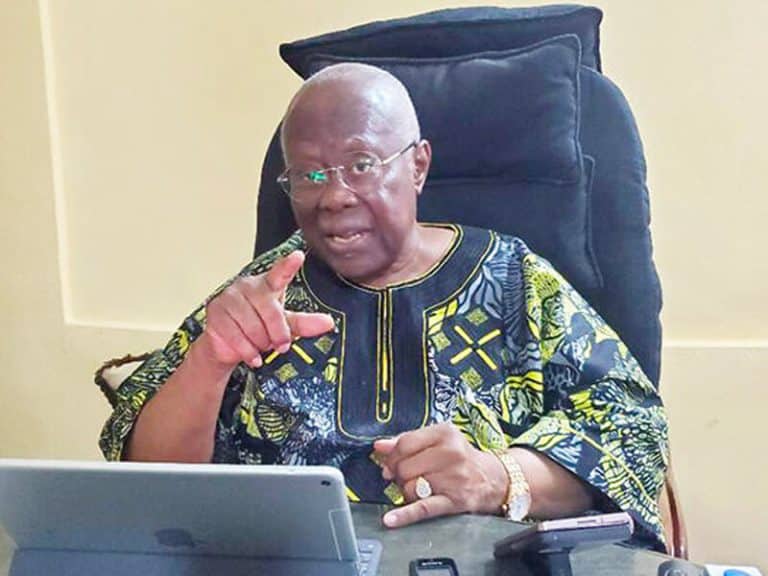
In a recent interview, Chief Olabode George, former Deputy National Chairman of the Peoples Democratic Party (PDP), has called for a comprehensive overhaul of Nigeria’s Independent National Electoral Commission (INEC), labeling the nation’s electoral process as “shambolic” and “a complete disgrace.”
George’s criticism comes in the wake of the leadership crisis within the Lagos State House of Assembly, where Mudashiru Ajayi Obasa was controversially reinstated as Speaker following Mojisola Meranda’s resignation. George condemned the reinstatement, asserting that due process was not followed and describing the Assembly’s operations as akin to a “private enterprise” where decisions are made unilaterally.
Highlighting the broader implications of such political maneuvers, George emphasized the urgent need to address systemic issues within Nigeria’s electoral framework. He argued that without a transparent and accountable electoral process, the essence of democracy is undermined, leading to governance that does not reflect the will of the people.
This is not the first time George has voiced concerns about INEC’s operations. In 2019, he advocated for the commission’s complete dismantling, citing its compromised and partisan nature as detrimental to Nigeria’s democratic integrity.
George’s recent comments have reignited discussions on electoral reforms, with advocacy groups like Mandate4.org mobilizing citizens to push for a draft bill aimed at restructuring INEC. These efforts underscore a growing consensus on the necessity for electoral reforms to ensure that future elections are free, fair, and truly representative of the Nigerian populace.
As Nigeria approaches its next electoral cycle, the calls for INEC’s overhaul and the elimination of undemocratic practices like godfatherism are gaining momentum. Stakeholders across the political spectrum are urging for swift and decisive actions to restore public confidence in the nation’s democratic institutions and processes.

GIPHY App Key not set. Please check settings